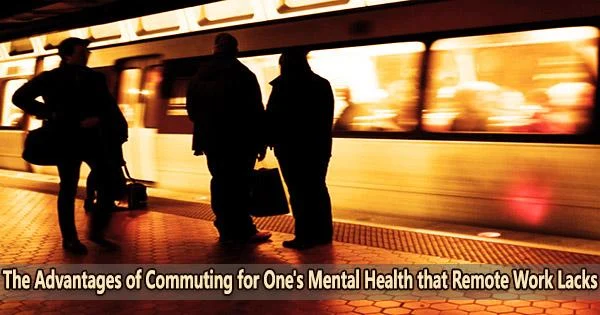The typical commute time for most American workers is 26 minutes each way, or about an hour per day, with 7.7% of workers spending two hours or more on the road.
Many people think of commuting as a chore and a waste of time. However, during the remote work surge resulting from the COVID-19 pandemic, several journalists curiously noted that people were could it be? missing their commutes.
Even though she worked from home, one lady admitted to The Washington Post that she frequently sat in her car in the driveway at the end of the day in an effort to carve out some personal time and signal the change from work to nonwork responsibilities.
We tried to comprehend what people missed when their commutes abruptly vanished as management scholars who research the intersection of people’s work and personal life.
In our conceptual study recently published in Organizational Psychology Review, we argue that commutes are a source of “liminal space” a time free of both home and work roles that provides an opportunity to recover from work and mentally switch gears to home.
Many employees lost this built-in support for these crucial everyday routines when the shift to remote work occurred. Those who are unable to cognitively switch gears face role ambiguity, which can cause stress. Those who don’t mentally detach from their jobs are susceptible to burnout.
We believe the loss of this space helps explain why many people missed their commutes.
Commutes and liminal space
In our study, we sought to determine whether this time and space is provided by the commute and what happens when it isn’t.
We reviewed research on commuting, role transitions and work recovery to develop a model of a typical American worker’s commute liminal space. Our study was primarily concerned with two cognitive processes: psychological detachment from the work role, which involves mentally disengaging from the demands of the job, and psychological recovery from the job, which involves replenishing mental energy reserves depleted while working.
Based on our analysis, we devised a model that demonstrates how the liminal zone the travel produced provided opportunities for recovery and detachment.
However, we also found that day-to-day variations may affect whether this liminal space is accessible for detachment and recovery. For instance, commuters by train must pay attention to route selection, arrival and departure tracking, and making sure they get off at the correct stop, but commuters by automobile must pay constant attention to driving.
On the one hand, we discovered that paying closer attention to the process of commuting results in less attention being paid to enjoyable recuperation activities like podcasts and music. Longer commutes, however, might allow people more time to unwind and recover.
We looked at 80 university employees’ commutes over the course of a week in an unpublished follow-up study that we undertook to test our conceptual model. The staff members filled out surveys in the morning and the evening inquiring about their commutes’ characteristics, if they “shut off” from work and relaxed during the trip, and whether they felt emotionally spent after arriving home.
The majority of the workers in this survey claimed to use the liminal period of the commute to mentally change from their work to home roles and to begin their psychological recovery from the pressures of the workday. Our analysis also supports the notion that commuting changes from day to day predict this capacity.
We found that on days with longer-than-average commutes, people reported higher levels of psychological detachment from work and were more relaxed during the commute. Yet, they reported less psychological separation from work and less relaxation during the commute on days when commutes were more stressful than usual.
Creating liminal space
According to our research, remote employees may find it advantageous to develop their own commute to give liminal space for recovery and transition, such as a 15-minute walk to start and end each workday.
Our preliminary findings are consistent with related research that suggests people who have returned to the workforce can benefit from making an effort to unwind as much as possible during their commute.
Attempting to avoid dwelling on the workplace and instead focusing on personally rewarding uses of the travel time, such as listening to music or podcasts or calling a friend, can assist commuters improve work detachment and relaxation. Other forms of commuting such as public transit or carpooling may also provide opportunities to socialize.
Our research demonstrates that commute stress has a greater negative impact on detachment and relaxation than travel length. So, for some people, taking the “scenic route” home may be worthwhile in order to avoid unpleasant driving situations.
















